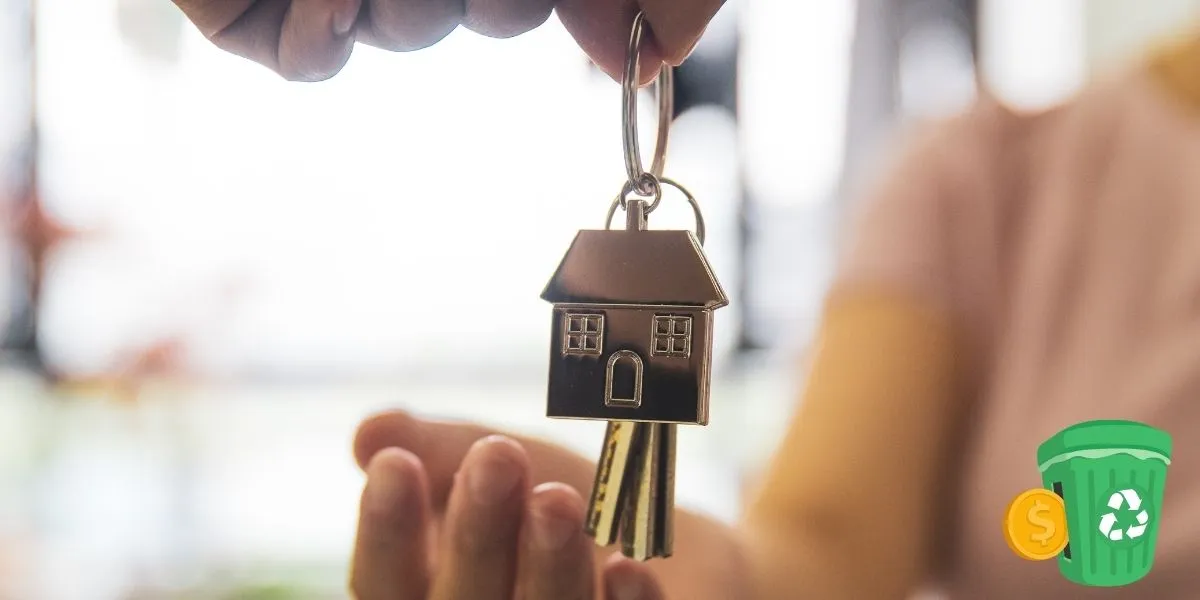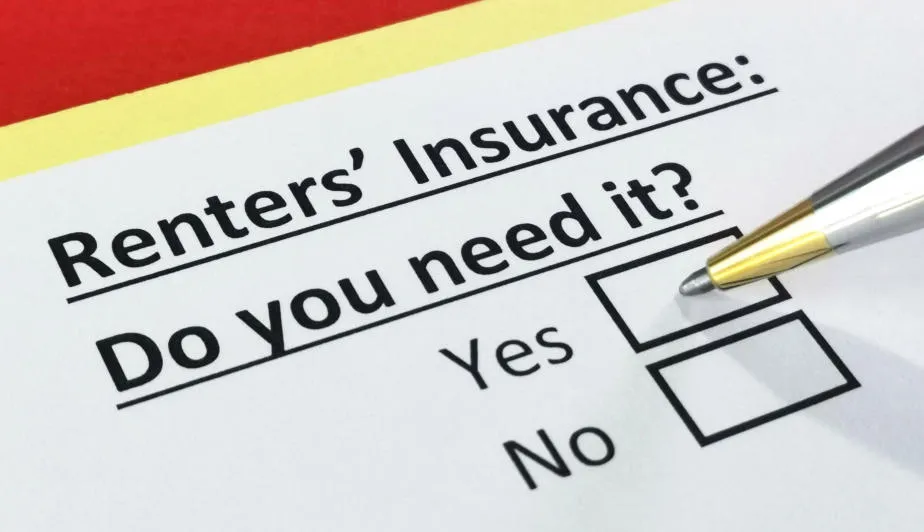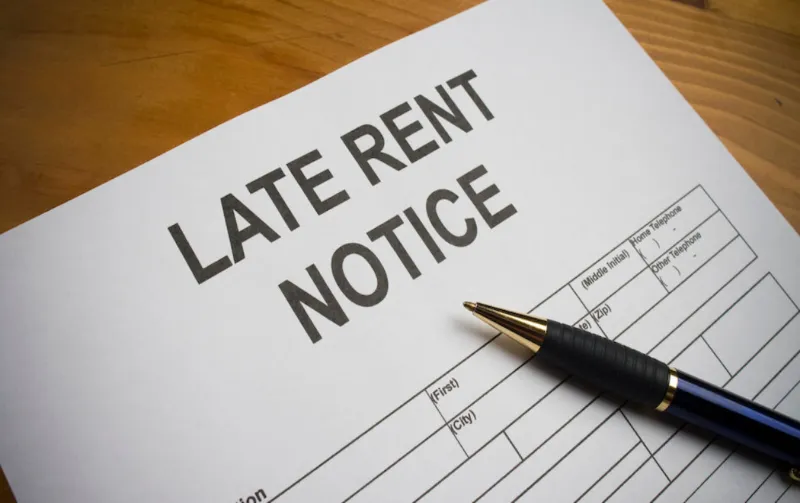10 Ways As A Tenant You Lose Money
Many tenants, both seasoned and new, often overlook subtle details in their rental agreements, underestimate the importance of renters insurance, or fail to engage in open communication with their landlords.
These oversights can cumulate into unexpected expenses, diminishing the joy and advantages of renting.
In this comprehensive guide, we’ll unravel the ten most common ways tenants find themselves parting with their money unnecessarily.
But this isn’t just a cautionary tale. With each point, we will equip you with the knowledge, strategies, and proactive measures to sidestep these financial traps.

Not Reading the Lease Thoroughly
The foundation of a successful tenant-landlord relationship lies within the pages of your lease agreement.
This document, often dense and laden with legal jargon, outlines every critical aspect of your rental arrangement.
From the duration of your tenancy and rent payment specifics to policies on pets, guests, and subletting, the lease holds the answers to all potential queries and concerns.
However, the excitement of finding a new home can sometimes lead to a cursory glance through this crucial document.
Such oversight might result in missing out on restrictive clauses or failing to notice stipulations that could lead to financial penalties.
For example, some leases contain clauses that impose hefty fines for hanging pictures without consent or require tenants to forfeit their security deposits under specific conditions.
To avoid these pitfalls, approach your lease with the diligence of an attorney.
Take your time to read each clause, and don’t hesitate to ask for clarifications on any ambiguous terms.
It’s also wise to inquire about any negotiable aspects. Remember, understanding your lease thoroughly not only prevents financial surprises but also empowers you to negotiate better terms.
Overlooking Renters Insurance

The notion of renters insurance often elicits a lukewarm response from tenants who view it as an unnecessary expense.
This perspective couldn’t be further from the truth. Renters insurance acts as a safety net, protecting your possessions against theft, fire, and other disasters.
It can also shield you from liability if someone is injured in your rental space.
Consider this scenario: a burst pipe floods your apartment, ruining your furniture and electronics.
Without renters insurance, you’re solely responsible for replacing your belongings, which can quickly escalate into thousands of dollars.
With insurance, however, you’re covered for the cost of these items, minus your deductible.
The peace of mind that comes from knowing you’re protected is invaluable and, when considering the average cost of renters insurance is relatively low, it’s a wise investment in your financial security.
To get started, shop around for quotes and understand what’s covered.
Policies can vary significantly, so it’s crucial to find one that suits your specific needs.
Additionally, take an inventory of your possessions to determine the coverage amount you need.
This proactive step ensures you’re not overpaying for unnecessary coverage or underinsured in case of a disaster.
Neglecting to Document Pre-existing Damage
One of the first things you should do upon moving into a new rental is to conduct a thorough inspection of the premises.
Documenting any pre-existing damage is critical for two reasons: it protects you from being held financially responsible for these damages when you move out, and it provides a clear record should disputes arise with your landlord over security deposit deductions.
The process is straightforward but requires attention to detail.
Arm yourself with a camera or smartphone and take clear, well-lit photographs of every room, focusing on any damage, no matter how minor it seems.
Pair these visuals with a written record, describing each issue in detail. Once completed, share this documentation with your landlord and retain a copy for your records.
This proactive approach not only safeguards your security deposit but also establishes a baseline of the apartment’s condition, which can be invaluable at the end of your lease.
Failing to Understand Maintenance Responsibilities

A common source of contention between tenants and landlords revolves around maintenance responsibilities.
Misunderstandings in this area can lead to disputes and, in some cases, out-of-pocket expenses for repairs that are not the tenant’s responsibility.
The lease agreement typically outlines these duties, but general rules of thumb can also guide you.
Landlords are responsible for ensuring the property remains habitable and must take care of major repairs and maintenance issues that affect the property’s structural integrity and utility services.
Tenants, on the other hand, are usually responsible for keeping the property clean, handling minor repairs (like changing light bulbs), and reporting any issues promptly.
One of the best ways to avoid confusion and potential financial loss is to clarify these responsibilities upfront.
If your lease does not explicitly detail maintenance duties, request this information from your landlord.
Additionally, always report maintenance issues as soon as they arise.
Delaying can exacerbate the problem, potentially leading to greater damage that you could be held financially responsible for if deemed due to negligence.
Late Rent Payments

Paying rent late is a surefire way to incur unnecessary costs. Most leases include a grace period, after which a late fee is applied.
These fees can add up quickly, turning an already expensive obligation into an even more burdensome one.
Moreover, habitual late payments can tarnish your rental history, making it challenging to secure future rentals.
To avoid falling into this trap, prioritize your rent payment above all other financial obligations.
Setting up automatic payments through your bank is a foolproof way to ensure your rent is always paid on time.
If you anticipate difficulty making a payment, communicate with your landlord immediately.
Many landlords are willing to work with tenants to arrange payment plans, especially if you’ve historically been a reliable tenant.
Not Negotiating Rent or Lease Terms
Many tenants accept the initial rent and lease terms presented by landlords without question.
However, everything in real estate is negotiable, including your rent. Landlords are often open to negotiation, especially if it means securing a reliable tenant for a longer period.
When negotiating, do your homework. Research the average rent prices in your area for similar properties and use this information to make your case.
Be prepared to offer something in return, such as a longer lease term or upfront payment of a couple of months’ rent. Remember, the negotiation process is a dialogue, not a demand.
Approach it with a clear, respectful tone, and you may find your landlord more receptive than you expected.
Ignoring Energy Efficiency
Energy costs can consume a significant portion of your monthly budget if not managed wisely.
Many tenants overlook the impact of their energy consumption, assuming it’s a fixed cost.
However, by adopting energy-efficient habits, you can significantly reduce your utility bills.
Simple changes can have a profound impact. For example, replacing incandescent bulbs with LED lights, using smart power strips to turn off electronics when not in use, and regulating your thermostat settings according to the season can lead to substantial savings.
Additionally, consider investing in energy-efficient appliances if your lease allows for their replacement.
While the initial cost may be higher, the long-term savings on your energy bills will be worth the investment.
Overlooking Community Resources and Amenities
Many rental properties come with amenities and access to community resources that tenants fail to utilize fully.
Whether it’s a fitness center, pool, social events, or workshops, these features are included in your rent, and neglecting them is akin to leaving money on the table.
Take the time to explore all the amenities your community offers. Using the on-site gym, for example, can save you a costly gym membership elsewhere.
Participating in community events not only enriches your social life but can also provide networking opportunities.
Additionally, some communities offer services like printing, package handling, or even discounts at local businesses. Familiarize yourself with these benefits and make the most of them.
Failing to Communicate with Landlords

Effective communication with your landlord can prevent a multitude of financial woes.
Whether it’s a repair request, a concern about the property, or a personal financial setback affecting your ability to pay rent, timely and clear communication is key.
Establishing a positive relationship with your landlord from the start can make these conversations easier.
If you encounter financial difficulties, approach your landlord as soon as possible to discuss potential solutions.
Many landlords appreciate the heads-up and may offer flexibility in payment terms.
Similarly, when it comes to maintenance issues, reporting them promptly can prevent minor problems from escalating into major, costly repairs.
Not Planning for the Future
One of the most significant ways tenants lose money is by not planning for the end of their lease.
Moving costs, security deposits for your next rental, and potential overlaps between leases can strain your finances if not anticipated.
Start saving early for your next move. Setting aside a small amount each month can help ease the financial burden when it’s time to relocate.
Additionally, understand the terms of your lease regarding notice periods and lease renewal.
Being caught off-guard by a lease renewal you’re unprepared for can lead to rushed decisions and unnecessary expenses.
Final Thoughts
Renting doesn’t have to be a financial drain. By being informed, proactive, and engaged, you can navigate the rental landscape efficiently, saving money and avoiding common pitfalls.
Each of the ten points discussed offers an opportunity to optimize your renting experience, from thoroughly understanding your lease and securing renters insurance to adopting energy-efficient habits and communicating effectively with your landlord.
Remember, the key to financial savvy as a tenant lies in the details. Paying attention to the small things, asking the right questions, and planning ahead can transform your renting experience from one of financial stress to financial savvy.
Armed with this knowledge, you’re now better equipped to make informed decisions that will benefit your wallet and your peace of mind.
Renting is more than a temporary arrangement; it’s a lifestyle choice that, when managed wisely, can offer flexibility, freedom, and financial benefits.
By applying the insights from this guide, you can enjoy the perks of renting while minimizing its financial downsides.